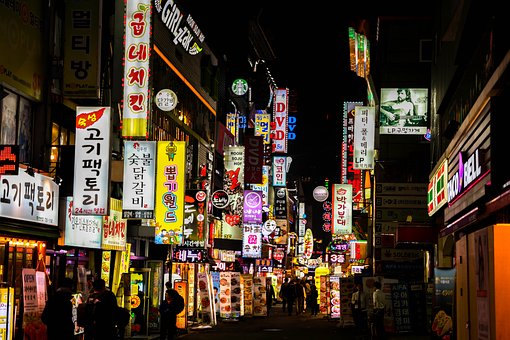Your native language
Depending on what native language you speak, learning Korean might be just a little bit easier or a little bit tougher for you. For example, it is thought that Korean is especially difficult for native English speakers to become fluent.
Meanwhile, for Japanese, Chinese, and Arabic speakers, Korean can be an easy language to learn. It could take far few hours (or years!) to become fluent at the same level as a native English speaker.
Don’t worry, though! Your native language may slow you down a little bit, but it isn’t an obstacle you cannot overcome! For example, you can use associations in your native language for Korean words you want to learn.
Your previous language learning experience
You’re at an advantage with learning a new language if you were raised as bilingual. Having developed fluency with speaking more than one language as a child over the years has made you naturally more adjustable to learning new languages.
Aside from that, other languages you have learned will help as well. One reason for this is because your other language learning experiences will have helped you develop good learning habits. This will get you started quickly with Korean as well.
Your brain will have already adjusted to the type of learning that studying a new language follows. Thus you’ll have an easier time learning Korean as well. This is especially so if you’re adept at learning new languages!
The learning methods you are using
Learning Korean in a classroom setting is the best way to get clear information on grammar structures. It will also give you a well-thought-out plan to follow for learning vocabulary.
However, if you aren’t learning, practising, or applying the Korean you learned in situations outside of the classroom, then your progress will be slower. Instead of just focusing on getting the minimal homework done, try actively watching Korean TV shows and movies, practice through apps or language exchanges, talk with native speakers, and use eBooks and Korean learning websites. These are other fun methods Korean language learners like you can try to help develop your skills and achieve language proficiency faster.
If you have the chance, then travelling to Korea to attend language school is the absolute quickest way to learn Korean and become fluent in Korean.
How long does it take to learn Korean?
You can learn in 3 months, 6 months or a year it all depends on you but you have to manage yourself like you become fluent in a year.
In 3 months (90 days) of learning Korean, you have a 3-minute conversation in Korean if you study for 7-10 hours per week. After 1 year of studying at this pace, you can become conversationally fluent.
Different steps of learning Korean take different amounts of time.
Now we will discuss how much time different steps take.
Learning the Korean Alphabet
With our Multibhashi language learning program, you will learn the Korean alphabet as quickly as 60 to 90 minutes! We will teach you the basics of the alphabet so you can read most words. You will be able to start sounding out words, phrases, and sentences right away. As you start learning Hangul and getting more accustomed to using it, you’ll find yourself more comfortable reading Korean words which then helps you improve your Korean vocabulary.
Have a 3-minute Korean conversation
If you spend about 1-2 hours per day studying Korean, you should be able to have a 3-minute conversation in the first 90 days (about 3 months). In order to do this, make sure you pick the right materials and focus on the parts of the language that will give you the best results. Otherwise, you may waste months or years learning things that you will rarely use.
Conversational Fluency
You should be able to have conversational fluency in less than a year. Again, you want to follow the parts of the language that are used most often. By the time you are able to have a 3-minute conversation in Korean, you can start to direct the focus of your studies. Then you can talk to people in Korean in the situations that interest you most.






